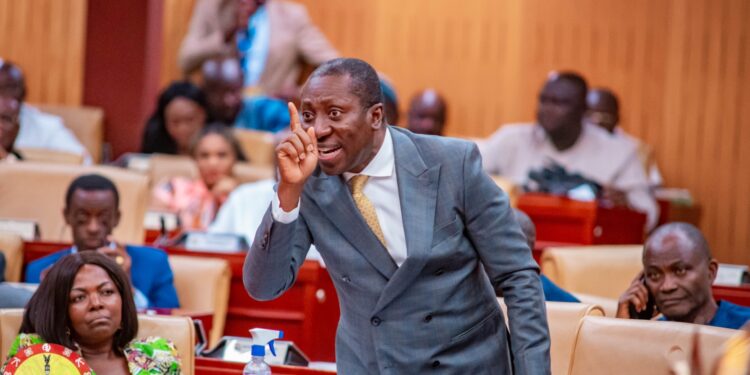Majority leader Alexander fenyo-Markin, has raised concerns about the potential impact of the National Democratic Congress (NDC)’s super-majority in the next Parliament.
While acknowledging the NDC’s overwhelming majority, he foresees a significant number of their Members of Parliament (MPs) becoming redundant.
“The NDC has promised a lean government, and I can foresee a lot of their MPs becoming redundant,” Afenyo-Markin.
The NDC, having secured a strong majority in Parliament, has pledged to limit the size of its government, with an estimated 40 to 60 ministers.
Afenyo-Markin pointed out that many of these ministers and deputy ministers would need to come from Parliament due to constitutional requirements.
This could lead to as many as 35 to 40 NDC MPs being appointed to ministerial roles, leaving them with around 140 MPs in Parliament.
“That is huge,” Afenyo-Markin noted. “With such a number, many of them would essentially become redundant in Parliament.
They wouldn’t be able to perform their legislative duties as effectively since they will be busy with their ministerial roles and obligations.”
“They will be expected to visit their constituencies, but the financial resources for such travel and engagement will be limited, as only a few will have ministerial appointments,” he added.
“This will create tension within the NDC ranks, as MPs will struggle to meet the expectations of their voters.”
Afenyo-Markin warned that the NDC’s super-majority, while initially advantageous, might result in internal struggles and tensions that could affect their ability to function effectively in Parliament.
“NDC has the majority in [the next] Parliament but I foresee a lot of them becoming redundant.”
– Afenyo-Markin explain why he believes the NDC’s super-majority will work against them in Parliament. #JoySMS pic.twitter.com/eM3qJ3Jzlk
— Joy 99.7 FM (@Joy997FM) December 18, 2024

